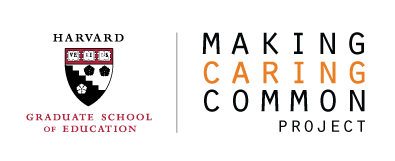Special Update: October 2018
We need to talk to young people about misogyny, sexual harassment, and assault.
Amid the bitterly polarizing events of the past week, there seemed to be one point of agreement on both sides of the aisle: Sexual assault is an epidemic in this country, with devastating and long-term repercussions for survivors. We also saw that many survivors—for a number of complex reasons—are unwilling to come forward to report their experiences or even discuss them with trusted friends and family.
Parents, caregivers, and educators are our first line of defense in preventing misogyny and sexual harassment, and in raising our children—our boys in particular—to clearly understand and take seriously sexual assault and consent. But as we discussed in our report, The Talk, although rates of sexual harassment and sexual assault are alarmingly high in this country, most parents and educators are not having these critical conversations with the young people in their lives.
You can begin to change that today. Below are resources to help guide parents, caregivers, and educators in having these difficult conversations with young people. We also have included an audit for educators, which is an essential first step for schools that want to take a closer look at how they do—or do not—promote students' healthy relationships and prevent misogyny, harassment, and assault. Lastly, we have included a round-up of relevant news articles for you to share with your own networks to continue this critical conversation and to help put this important work in context.
Whether you are raising children or teaching children, these conversations can make an immeasurable and lasting difference in their lives. And if the events of the past week have shown us anything, it's that we must have them now and return to them until young people have the commitments and skills they need to avoid harming others, to protect themselves from harm, and to help others in harm's way.
Rick Weissbourd
Faculty Director, Making Caring Common
Resources for Parents
Misogyny and sexual harassment are distressingly commonplace in young people’s lives yet it appears that most parents have failed to address these topics. If you're a parent and aren't sure how to start a conversation at home, try these tips and resources:
Practice our 6 Tips for Parents: Reducing and Preventing Misogyny and Sexual Harassment Among Teens and Young Adults. Given the prevalence of sexually degrading and harassing behavior in young people’s lives, conversations about misogyny and sexual harassment are critical—and it’s vital that parents go beyond platitudes like “be respectful.” Here are six tips for parents for engaging in meaningful, constructive conversations.
Practice our 5 Tips for Parents: Guiding Teens and Young Adults in Developing Healthy Romantic Relationships. How can we as parents prepare our teens and young adults to develop healthy, caring romantic relationships? We can have frank, wonderful conversations with young people—even if we don’t have all the answers—that powerfully guide them, greatly enrich our relationships with them, and help us understand and develop skills in our own romantic relationships.
Access more Resources for Families. From tips to conversations starters, access more resources to support you at home.
Resources for Educators
Rates of sexual harassment and various forms of misogyny are high in schools, yet often they’re not addressed adequately. If you're an educator and aren't sure where to start at your school, here's what you can do:
Use our Audit for Educators. The audit helps educators reflect on the policies and practices of their school related to young people’s healthy romantic relationships, misogyny and sexual harassment, and assault. It is intended to help you answer these questions: Are we doing what is needed to prevent harassment and promote healthy relationships? What more could we do?
Practice our Scenarios for Educators. Many teachers have heard or seen students saying things that are misogynistic, objectifying, insensitive, or disrespectful based on gender, sexuality, or sexual orientation. Because these comments may catch us off guard and are often sensitive in nature, many adults struggle to know what to say in the moment. By thinking through and practicing our responses in advance, we can be prepared the next time we hear these comments in our schools.
Access more Resources for Educators. From toolkits to classroom tools to online courses, access additional resources to support you in a school setting.
Read the Report and Recent Coverage
Take a moment to reread The Talk: How Adults Can Promote Young People’s Healthy Relationships and Prevent Misogyny and Sexual Harassment. In addition to our key findings and recommendations, we also provide information about the state of sex education in the United States, statistics related to sexual assault, and progress (or not) on gender roles and expectations.
Recent media coverage of our report includes:
"We Can’t Just Let Boys Be Boys" by Peggy Orenstein in The New York Times
"Let's Take a Stand Against Sexual Harassment in Schools" by Richard Weissbourd in Educational Leadership
"Having The Talk" produced by Child Trends News Service
We also recommend the following coverage from 2017-18:
"Beyond #MeToo: It Starts in Middle School" produced by WNYC
"Sexual harassment among teens is pervasive. Here’s how parents can change that." by Alison Cashin and Richard Weissbourd in The Washington Post
"Millennial males react to Harvard report on sex and relationships" by Deborah Roberts for Good Morning America
"Parents are getting the 'sex talk' all wrong—and not because of the sex part" by Jenny Anderson in Quartz
"The women’s revolt: Why now, and where to" by Christina Pazzanese and Colleen Walsh in The Harvard Gazette
"5 Questions We Had on Talking to Kids about Sexual Harassment Answered" by NBC's Parent Toolkit
"Ivy League researchers released a huge report on teen sex. It's a must-read for parents." by Evan Porter in Upworthy


